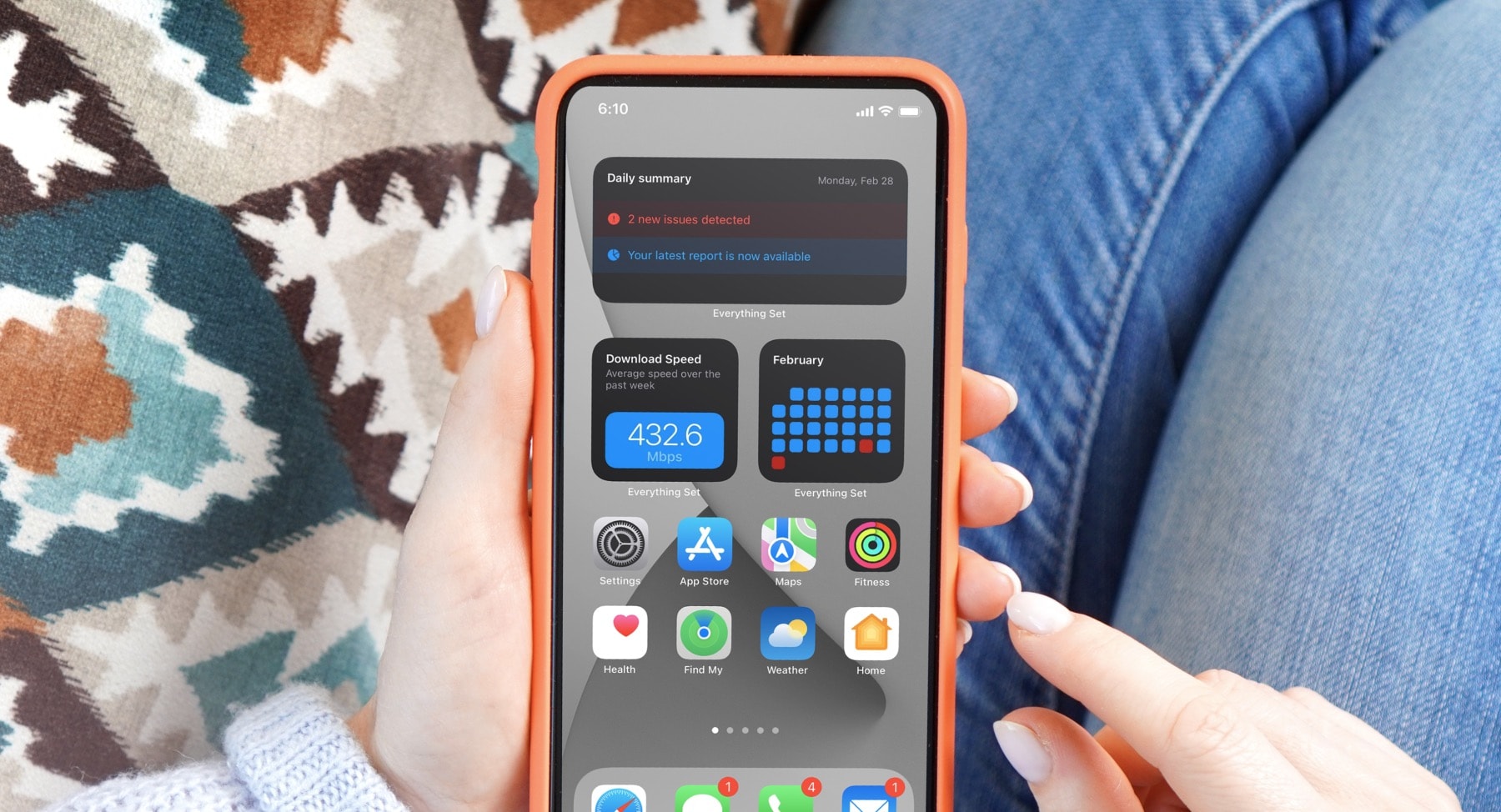We use cookies (or similar technologies) to collect information about how you interact with our website and allow us to remember you. We use this to improve your experience and for analytics about who our visitors are. To learn more, see our Privacy policy
How Everything Set safeguards user's data
There’s an irony to telling people what we do here at Everything Set. We say, hey, we want to make your smart home private and secure, then we tell you we do that by monitoring all your device data. It sounds a little invasive. It sounds like we do the exact thing we’re protecting you against. Well, we don’t…
Let’s clear that up straight away. We absolutely do not, can not, and never will read your data. We’ll never know what your data is. That’s not what we do and that’s not what we want to do. In fact, knowing what the data was wouldn’t be useful to us, it wouldn’t make our AI more efficient. It wouldn’t impact how effectively we can alert you to others accessing your data. So, if you’re worried about any of that, don’t be - we’re just after your data patterns.

Let’s talk about metadata.
Your metadata is information about your data. Things like its size, where it’s going, when it goes, etc. Think of a mail carrier. She’s got a big box, a little letter, and a soft, floppy parcel. She doesn’t know what’s in them but she knows they’ve come from the post office (data center), she knows there are three packages, and she knows one is big, one is medium, and one is small. She also knows you get all three on a Tuesday at 9am. That’s her metadata.
Now, imagine millions of mail carriers moving so fast you can’t even see them, all day, every day, traveling thousands of miles around the world in an instant, delivering information instead of parcels. That’s what we’re monitoring.
Everything Set can see the metadata of your home network. We look at the metadata of all your devices and build tailored profiles of your specific device patterns. For the most part, devices will behave similarly on a daily basis - they may be more active at different times of day, or even week, but our AI gathers all of this metadata to know exactly what the pulse of your smart devices should look like.
We then predict how they should be communicating. Knowing what your ‘normal’ looks like allows us to alert you to anomalies. For example, if a device started sending your data somewhere it has never been before or sharing above the normal amount of data, we’d send an alert to your phone and stop it or help fix it.
The more users we have, and the more devices we monitor, the more accurately we can detect suspicious behavior. Similarly, the longer you have Everything Set hooked up to your smart home network, the better we can predict the patterns of your devices. We use real-time analysis of crowdsourced metadata and AI, achieved by aggregating similar information across all user devices. We look at things like the destination, frequency of communication, size of packets (a segment of a data message), and other metrics. Just as with any data pool, the more results we have, the more refined and significant the results.
So, not only do we have no idea what your data contains (we only know what it looks like from the outside), we also separate you from your metadata; we don’t know it’s yours when it joins the pool to be analyzed. We discard all content in every packet, strip identity from the metadata, and then encrypt the remainder before processing it for analysis in the cloud.
Further to this, our focus on maintaining your privacy extends to every corner of the system we've designed. For example, we maintain your customer data (like your billing information) in a completely separate infrastructure. This even further reduces the possibility that your network metadata could ever be linked back to you.
That is all to say, if you asked us to show you your specific metadata in our cloud data pool, we couldn’t.
We don’t know what your data is saying and we don’t know which metadata is yours. But we can deliver to you your individual device insights privately in our app...